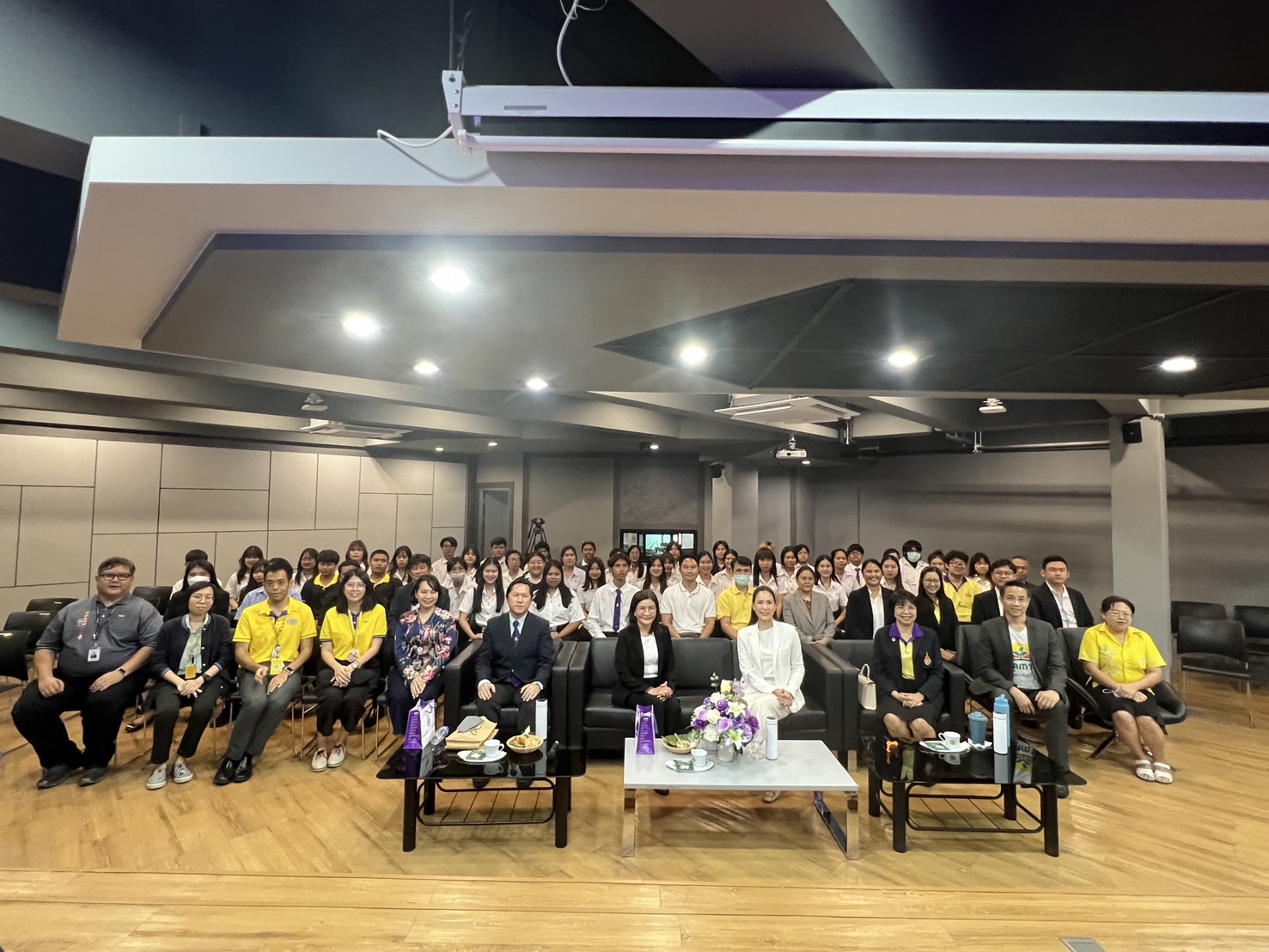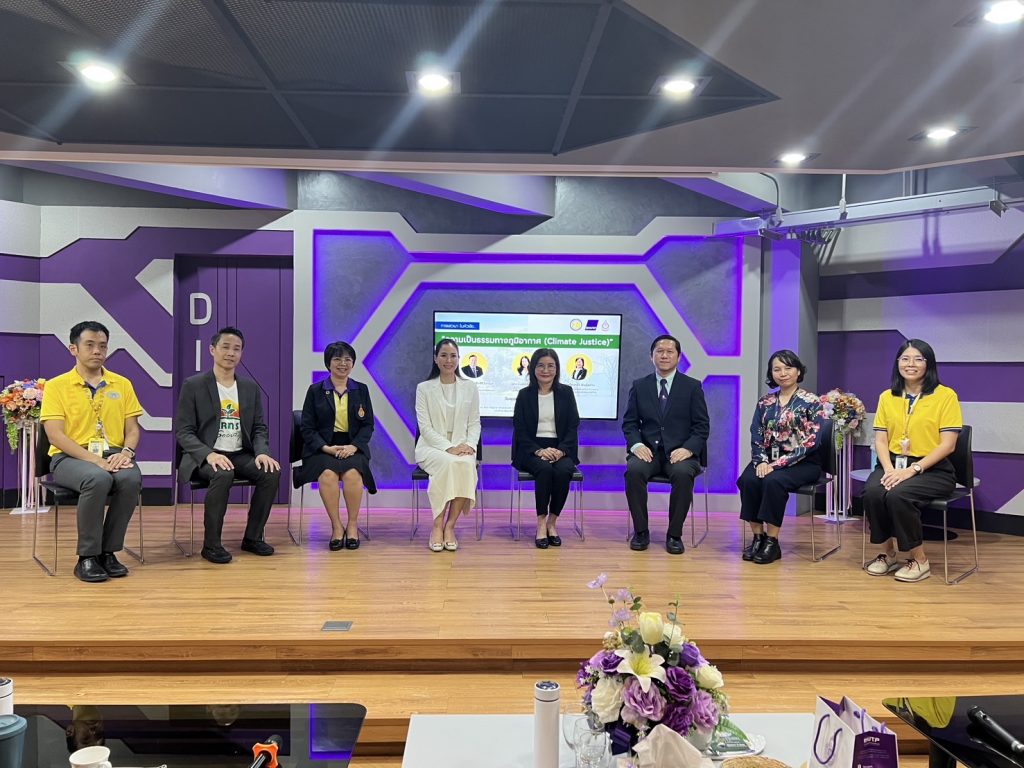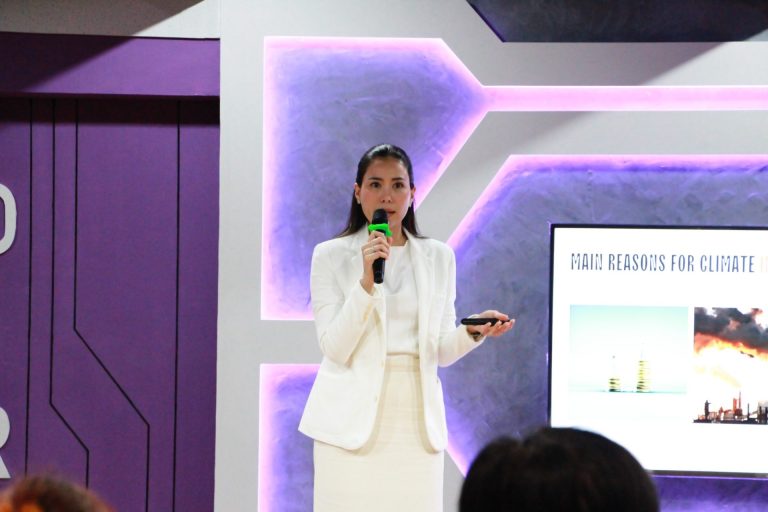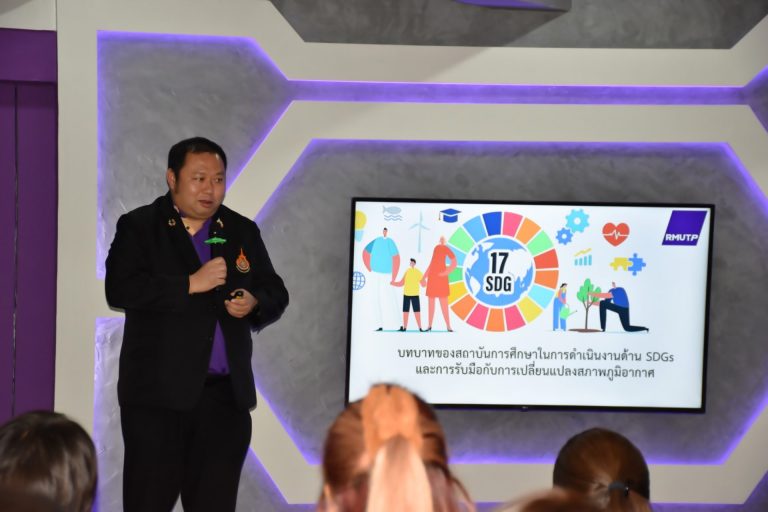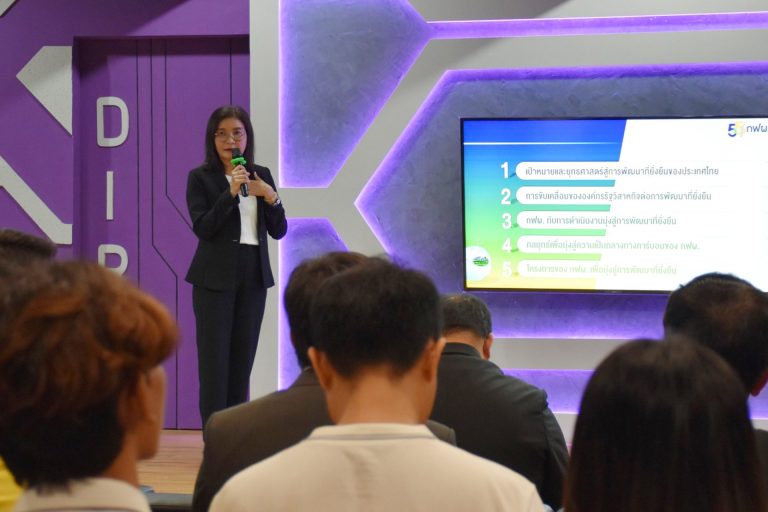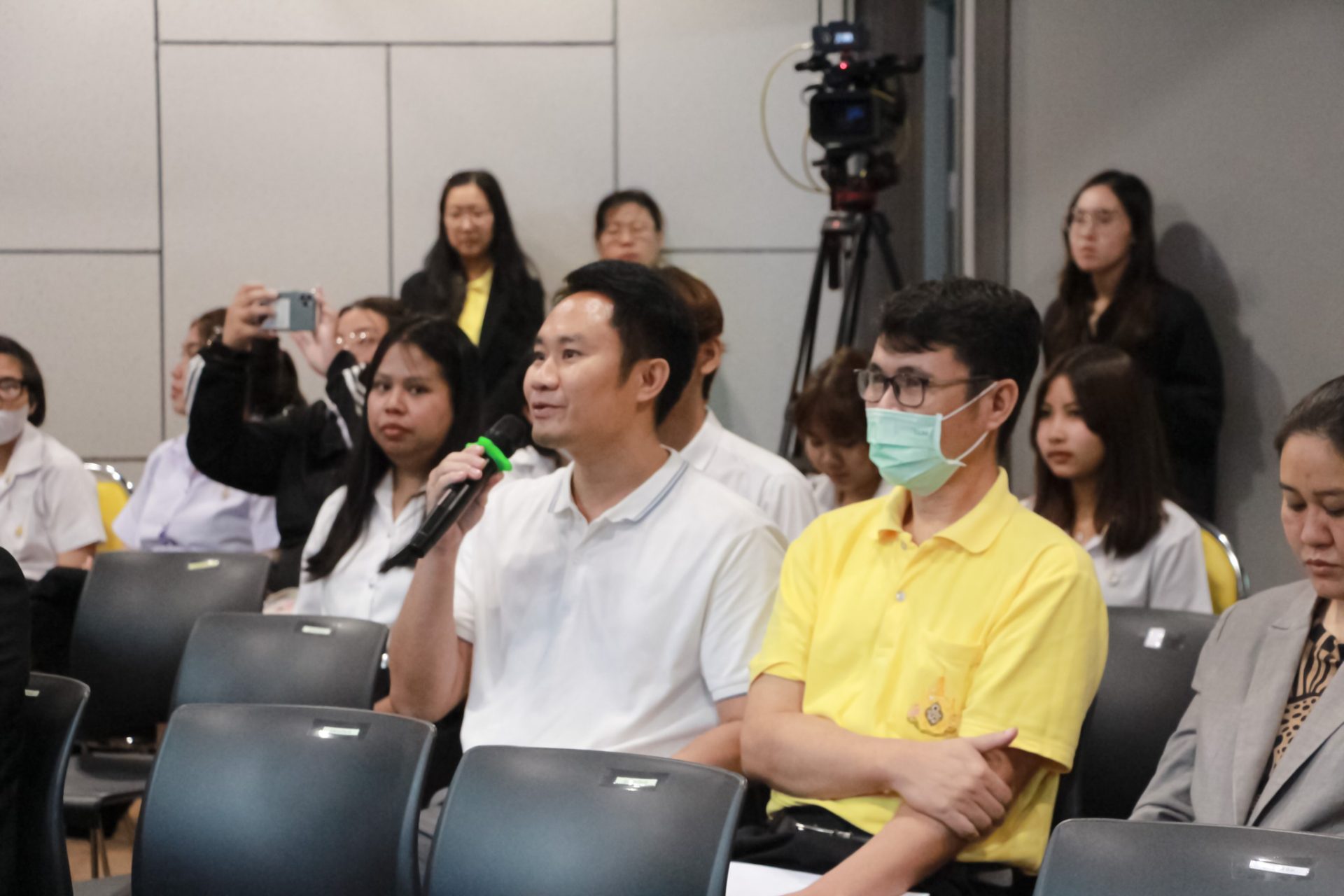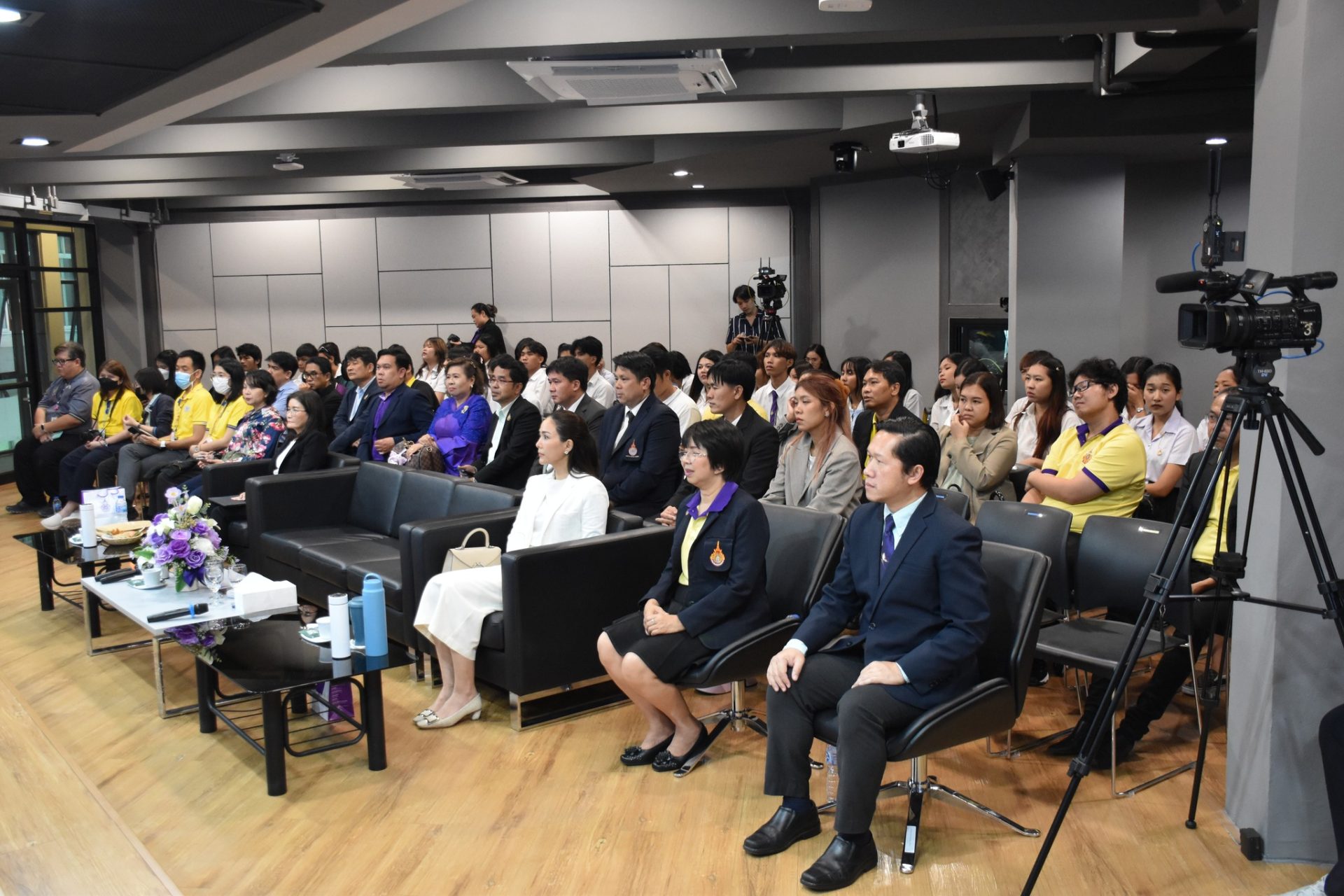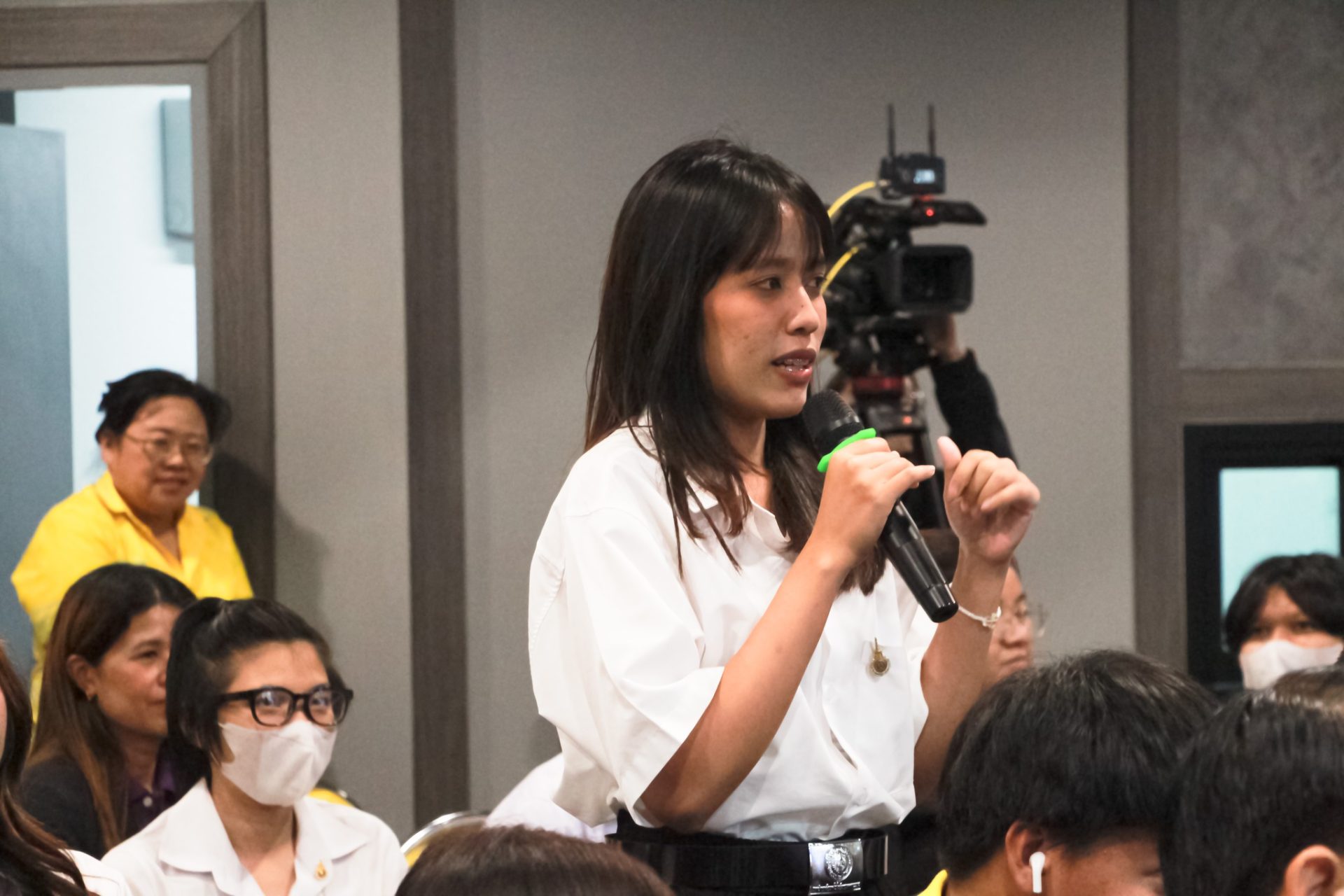
On October 2, 2024, the Faculty of Science and Technology at Rajamangala University of Technology Phra Nakhon (RMUTP) organized a seminar on the topic of “Climate Justice.” The event featured Dr.Natworapol Rachsiriwatcharabul, President of RMUTP, alongside Ms.Khemanit Jamikorn, actress and sustainability consultant, and Ms.Ratklao Phanaram, Director of the Environmental Division at the Electricity Generating Authority of Thailand (EGAT), as speakers. They shared their perspectives, ideas, and experiences on contributing to addressing climate change and global warming. The seminar took place in Room Digital Broadcast 204 at the Institute of Interdisciplinary Digital and Robotics Studies, RMUTP (North Bangkok Campus).
Dr.Natworapol Rachsiriwatcharabul stated that climate change is a critical and urgent global issue that affects multiple dimensions, including the environment, society, and the economy. Vulnerable groups, particularly those with limited resources, tend to be the most severely impacted. Addressing this issue goes beyond reducing greenhouse gas emissions and conserving the environment; it also involves fostering social equality and achieving sustainable development that is truly accessible to all. As an educational institution, RMUTP plays a vital role in supporting knowledge and creating innovations to drive societal change. This led to the organization of the “Climate Justice” seminar, which serves as a platform for exchanging knowledge and ideas, aiming to find concrete solutions to promote climate justice and sustainable development.
RMUTP is committed to contributing to sustainable development, in line with the United Nations’ Sustainable Development Goals (SDGs). The university was ranked by Times Higher Education (THE) in 2024 for its work in promoting sustainable development, particularly under SDG 11 (Sustainable Cities and Communities), where RMUTP ranked between 300–400 globally, ranked 6th among Thai universities, and 1st among Rajamangala universities. Additionally, RMUTP implements various tangible policies, such as promoting clean energy through the installation of solar panels on campus buildings, integrating sustainability into general education courses, and developing research and innovations. These initiatives aim to instill awareness in students and staff, encouraging them to recognize these issues and contribute to future change.
Ms.Ratklao Phanaram stated that the Electricity Generating Authority of Thailand (EGAT), as a state-owned enterprise, plays a significant role in the country’s development towards addressing climate change and promoting climate justice. EGAT focuses on two key objectives: Objective 10, promoting a circular economy and a low-carbon society, and Objective 11, reducing risks and impacts from natural disasters and climate change. These objectives have shaped EGAT’s policies toward sustainable development, emphasizing energy conservation and environmental protection alongside organizational development towards carbon neutrality. EGAT is committed to improving energy efficiency and optimizing resource use, while also creating business opportunities through innovation and digital technology. Key projects include increasing renewable energy production capacity, the Voluntary Greenhouse Gas Reduction Program under Thai Standards (T-VER), the Renewable Energy Certificate (REC) program, and the Green School project. EGAT aims to drive green energy businesses and raise awareness to combat climate change and ensure a sustainable future for the world.
Ms.Khemanit Jamikorn, representing the public sector in climate advocacy, highlighted the current challenges caused by greenhouse gas emissions and how these challenges disproportionately affect vulnerable groups, leading to income inequality. For example, farmers face drought and reduced agricultural yields, which directly impact their livelihood and families. This illustrates the crucial importance of climate justice. Policies and good governance are necessary to address these issues in a tangible way. Seven tools for promoting climate justice were presented, including Green Finance, Public Awareness Campaigns, Carbon Taxes, Cap & Trade systems, Renewable Energy Incentives, Regulations & Standards, and the Emission Trading System. Every individual, regardless of profession, plays a critical role in addressing environmental problems and contributing to their resolution.
